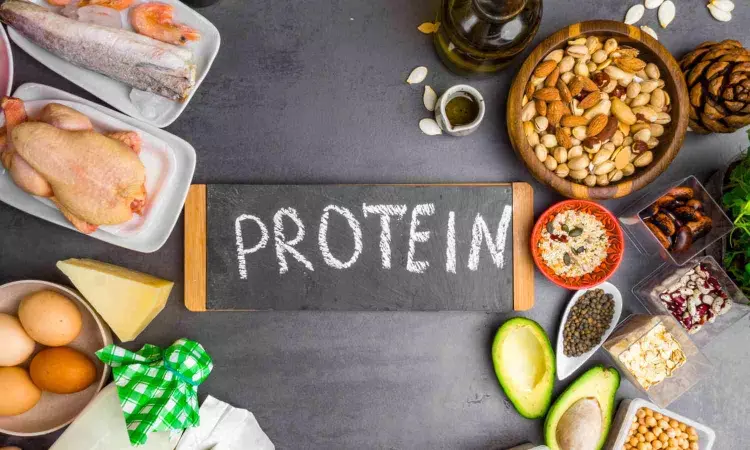- Home
- Medical news & Guidelines
- Anesthesiology
- Cardiology and CTVS
- Critical Care
- Dentistry
- Dermatology
- Diabetes and Endocrinology
- ENT
- Gastroenterology
- Medicine
- Nephrology
- Neurology
- Obstretics-Gynaecology
- Oncology
- Ophthalmology
- Orthopaedics
- Pediatrics-Neonatology
- Psychiatry
- Pulmonology
- Radiology
- Surgery
- Urology
- Laboratory Medicine
- Diet
- Nursing
- Paramedical
- Physiotherapy
- Health news
- Fact Check
- Bone Health Fact Check
- Brain Health Fact Check
- Cancer Related Fact Check
- Child Care Fact Check
- Dental and oral health fact check
- Diabetes and metabolic health fact check
- Diet and Nutrition Fact Check
- Eye and ENT Care Fact Check
- Fitness fact check
- Gut health fact check
- Heart health fact check
- Kidney health fact check
- Medical education fact check
- Men's health fact check
- Respiratory fact check
- Skin and hair care fact check
- Vaccine and Immunization fact check
- Women's health fact check
- AYUSH
- State News
- Andaman and Nicobar Islands
- Andhra Pradesh
- Arunachal Pradesh
- Assam
- Bihar
- Chandigarh
- Chattisgarh
- Dadra and Nagar Haveli
- Daman and Diu
- Delhi
- Goa
- Gujarat
- Haryana
- Himachal Pradesh
- Jammu & Kashmir
- Jharkhand
- Karnataka
- Kerala
- Ladakh
- Lakshadweep
- Madhya Pradesh
- Maharashtra
- Manipur
- Meghalaya
- Mizoram
- Nagaland
- Odisha
- Puducherry
- Punjab
- Rajasthan
- Sikkim
- Tamil Nadu
- Telangana
- Tripura
- Uttar Pradesh
- Uttrakhand
- West Bengal
- Medical Education
- Industry
Higher Protein Intake May Benefit Bone and Muscle Health in Rheumatic Disease: Study

New research emphasizes the importance of adequate-and possibly higher than currently recommended-protein intake for individuals with rheumatic diseases (RD) such as psoriatic arthritis, rheumatoid arthritis, osteoarthritis, and gout. Increased protein consumption has been linked to improvements in both lean and bone mass, suggesting that current dietary guidelines may need to be adjusted to better support musculoskeletal health in this population. This study was conducted by Gabriel P. and colleagues published in The Journal of Nutritional Physiology.
In a comprehensive analysis of 3,972 individuals with psoriatic arthritis, rheumatoid arthritis, osteoarthritis, and gout in the National Health and Nutrition Examination Survey (NHANES), the results indicate that ingesting greater than 0.8 g/kgBM/day of protein can have positive implications for musculoskeletal health. The research highlights the significance of specific nutritional measures in the treatment of rheumatic diseases, which are notorious for leading to muscle loss and decreased bone mineral density (BMD).
People with rheumatic diseases are at increased risk of losing both muscle and bone mass because of chronic inflammation and decreased mobility. In earlier studies, there was a suggestion of a protective effect of dietary protein, but the exact associations of protein consumption and musculoskeletal outcomes within RD populations were unknown. The present research focused on filling this gap by analyzing both absolute (grams/day) and relative (grams per kg body mass per day) protein consumption and their relationships with lean and bone mass.
Results
• The outcomes showed a statistically significant linear relationship between absolute protein consumption and lean mass, and an increment of 50 g/day in the intake of protein was associated with an increase in lean mass by 1.54 kg (95% CI: 0.78 to 2.30, p < 0.001).
• There was a non-linear relationship between relative protein consumption, and lean mass gain decreased with increasing intakes above about 1.6 g/kgBM/day (p < 0.001).
• For BMD at the femoral neck, absolute and relative protein intakes had non-linear correlations.
• Protein consumption exceeding 150 g/day or 1.2 g/kgBM/day did not provide additional increases in BMD (absolute protein consumption: p < 0.001; relative: p = 0.005).
• Neither was any significant relationship observed between protein consumption and whole-body or lumbar spine BMD.
• These results imply that moderately increased protein intake—above the generally advised 0.8 g/kgBM/day—will be adequate to enhance lean mass and possibly bone health in patients with RD.
Protein intakes greater than 0.8 g/kgBM/day are found to be useful in enhancing lean and bone mass in patients of rheumatic diseases. The results suggest the importance of testing and providing enough protein as one of the chief nutritional objectives in the management of RD. Although greater intake levels have positive effects, very high intakes do not generate further enhancement, focusing on the benefits of balanced meal planning in this susceptible group.
Reference
Esteves, G. P., Swinton, P., Sale, C., Gualano, B., Roschel, H., & Dolan, E. (2025). Non-linear associations between protein intake and lean and femur bone mass in individuals with rheumatic diseases: findings from the NHANES 2007–2018. The Journal of Nutritional Physiology, 100004, 100004. https://doi.org/10.1016/j.jnphys.2025.100004
Dr Riya Dave has completed dentistry from Gujarat University in 2022. She is a dentist and accomplished medical and scientific writer known for her commitment to bridging the gap between clinical expertise and accessible healthcare information. She has been actively involved in writing blogs related to health and wellness.
Dr Kamal Kant Kohli-MBBS, DTCD- a chest specialist with more than 30 years of practice and a flair for writing clinical articles, Dr Kamal Kant Kohli joined Medical Dialogues as a Chief Editor of Medical News. Besides writing articles, as an editor, he proofreads and verifies all the medical content published on Medical Dialogues including those coming from journals, studies,medical conferences,guidelines etc. Email: drkohli@medicaldialogues.in. Contact no. 011-43720751


